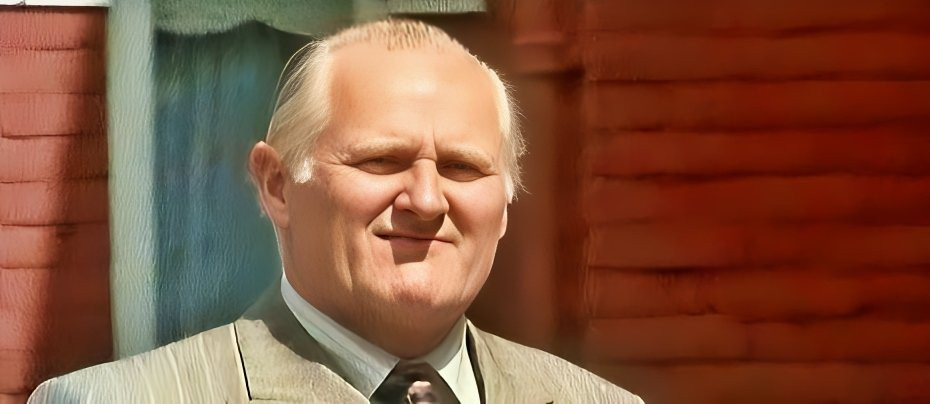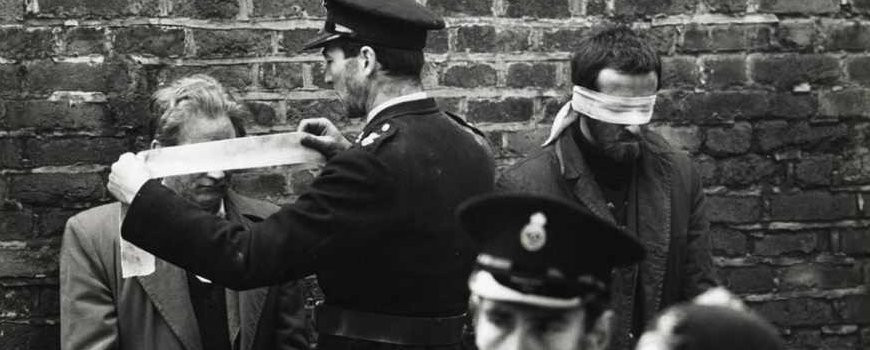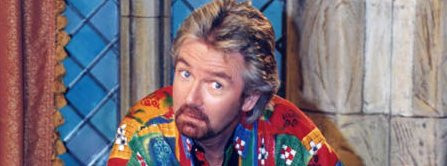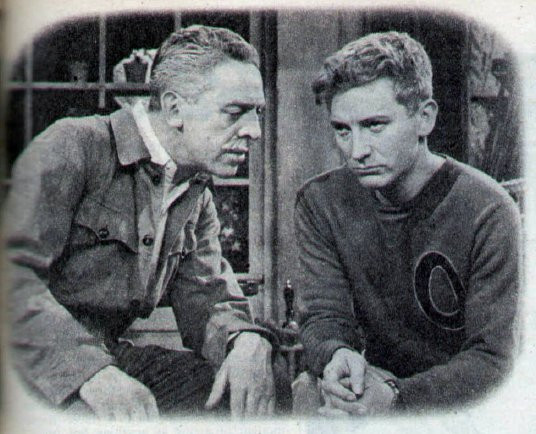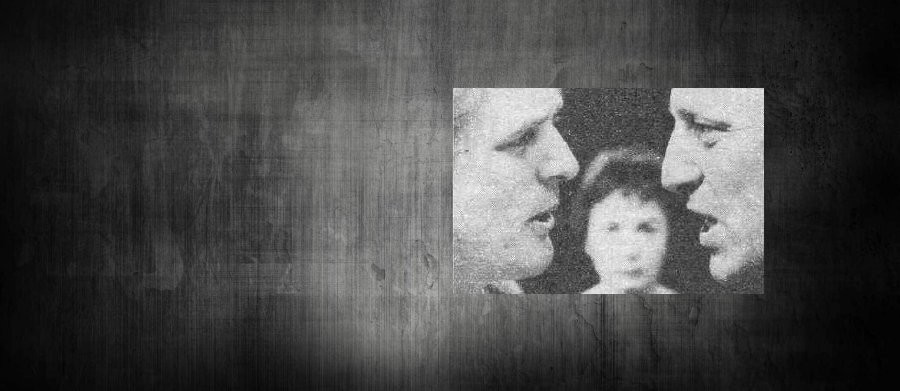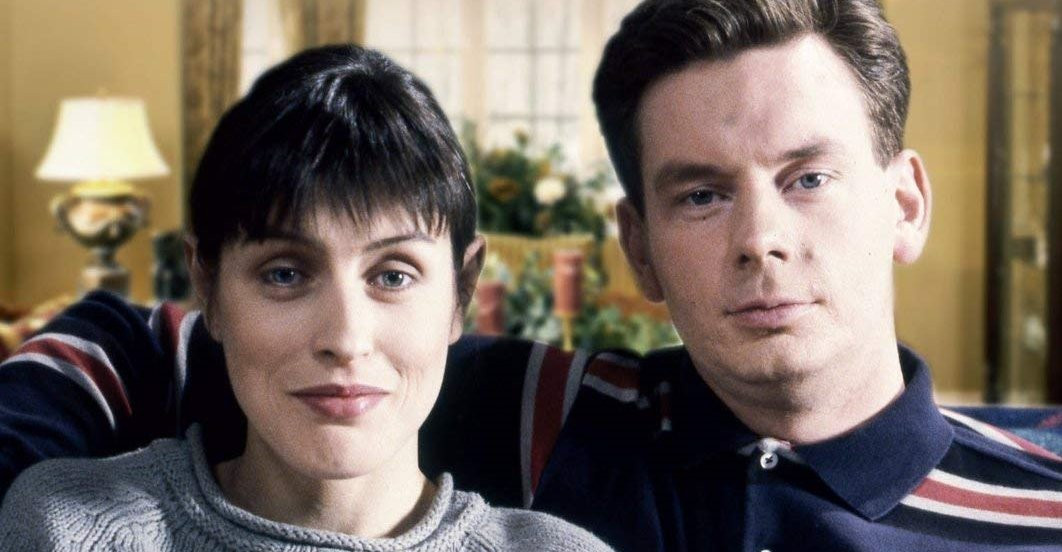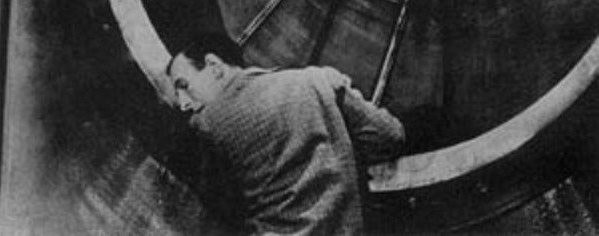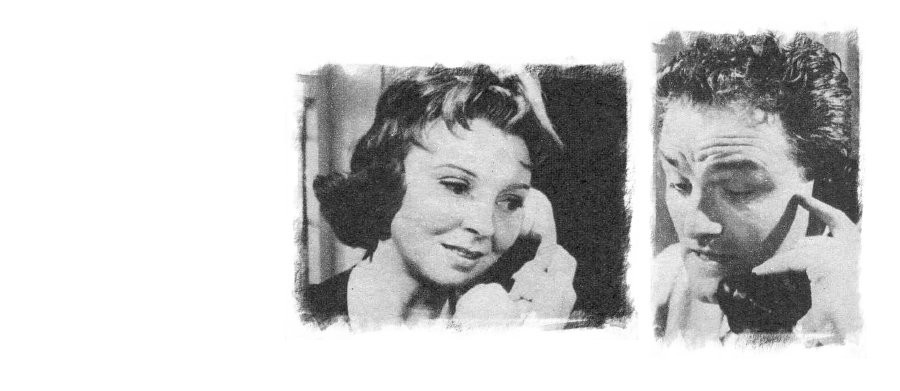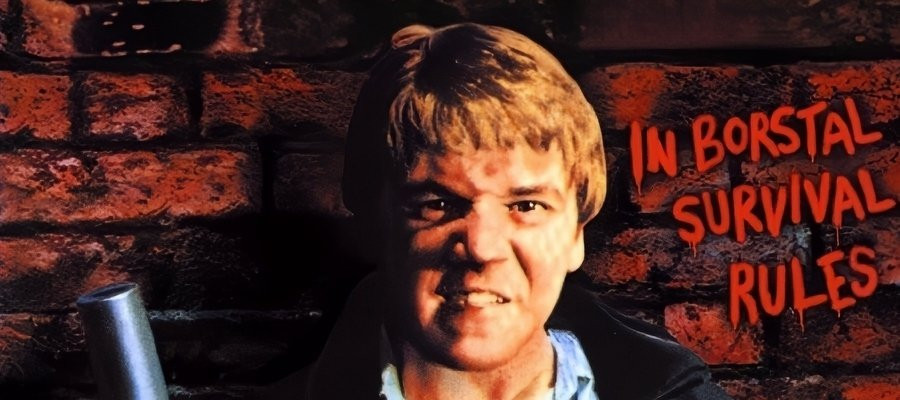
Scum
1991 - United KingdomWhen Scum finally made its long-delayed television debut on Channel Four in 1991, it did so not merely as a drama, but as a historical artifact—an urgent, brutal, and still-unsettling exposé of institutionalised violence that had spent 14 years in exile. Originally made in 1977 for the BBC’s Play for Today series and shelved due to its harrowing content, Alan Clarke's Scum represents one of the most infamous acts of censorship in British broadcasting history—and one of its most powerful reversals.
Set inside a British borstal, the film tracks two sharply contrasting inmates: Carlin, a young offender with a reputation for violence, and Archer, a cerebral, non-conformist pacifist who wages a quiet war of attrition against authority. While Carlin fights his way to dominance within the brutal hierarchy of inmate life—eventually assuming the role of “Daddy”, the institution's unofficial head prisoner—Archer refuses to engage in violence, instead using subversion and wit to needle the system. Together, they embody different modes of resistance against a prison regime that is as much about psychological submission as it is about physical control.
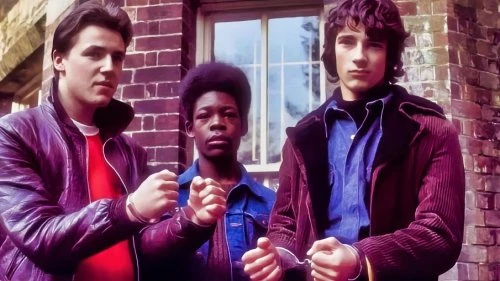
The power of Scum lies not in subtlety but in its unflinching honesty. Clarke and writer Roy Minton don’t pull punches; they refuse to hide behind euphemism or moral equivocation. In this world, sadism is institutionalised. The staff turns a blind eye—sometimes literally, as in the film’s most gut-wrenching moment—to rape, bullying, and suicide. In the infamous greenhouse assault, the character of Davis is raped while a guard knowingly watches, later killing himself after receiving only scorn from the authorities. The film doesn’t dress this up in metaphor; it shows it plainly, and that is its critique.
This commitment to raw realism is exactly what terrified the BBC in 1977. Even though the production team undertook considerable research to ensure authenticity, it was deemed "too realistic"—a damning irony, given that this was the film’s very point. Producer Margaret Matheson later recalled that BBC executives feared the line between documentary and drama had been blurred. But it was never the line that blurred—just the comfort zone of those in power.
In terms of structure, Scum compresses a grimly plausible series of atrocities into a short runtime, which has led some to accuse it of melodrama. Certainly, the rapid sequence of bullying, rape, suicide, and riot may seem exaggerated. But this compression is not sensationalism—it’s urgency. Clarke isn’t claiming every borstal is a war zone at all times; he’s demanding attention to the institutional conditions that allow such violence to happen with impunity.
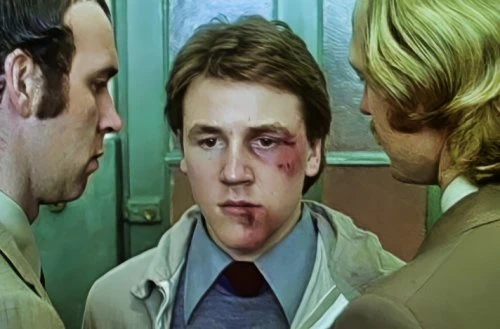
Ray Winstone (billed as Raymond Winstone), who delivers a quietly seething performance as Carlin, perfectly captures the character's transformation from victim to reluctant tyrant. Carlin's rise to power is both triumphant and tragic: he may control the wing, but only by adopting the very brutality he once opposed. Mick Ford’s Archer provides the moral spine of the film—his calm defiance a stark contrast to the toxic masculinity that governs every other interaction. Together, they illustrate that there is no simple victory in a system built on submission.
The film’s infamous riot scene—shot with alarming realism—serves as a cathartic climax. Legend has it that some actors intended to turn the staged fight into a real one, especially targeting John Judd, whose portrayal of the sadistic officer Sands struck too raw a nerve. Judd escaped unharmed, but the resulting chaos on screen is unforgettable, encapsulating the inmates’ long-repressed rage and the institutional failure that fuelled it.
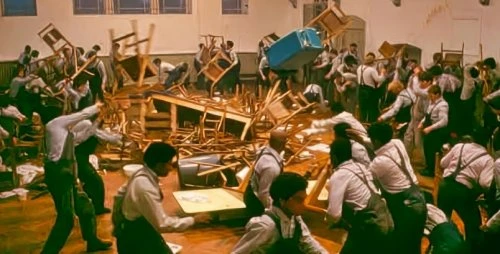
The irony of Scum being censored for its violent content is that the film is an indictment of the very real violence done to young men under the guise of rehabilitation. By silencing it for over a decade, the BBC arguably proved Clarke’s point: institutions would rather suppress uncomfortable truths than confront them.
In retrospect, Scum marked the beginning of Clarke’s most incisive period. The themes he explored here—authority, class, institutional violence—would recur in later works like Made in Britain and The Firm. But Scum remains his most visceral and perhaps his most important statement. It doesn’t ask the viewer to feel sorry for its characters. It demands that we feel angry on their behalf.
Now, more than three decades after its belated broadcast, Scum still shocks—but not because it is gratuitous. It shocks because it dares to tell the truth. And it remains one of the most searing indictments of the British penal system ever committed to screen.
Rating: ★★★★★
A masterpiece of social realism—raw, essential, and impossible to forget.
Seen this show? How do you rate it?
Seen this show? How do you rate it?
Published on August 4th, 2025. Written by Laurence Marcus for Television Heaven.


